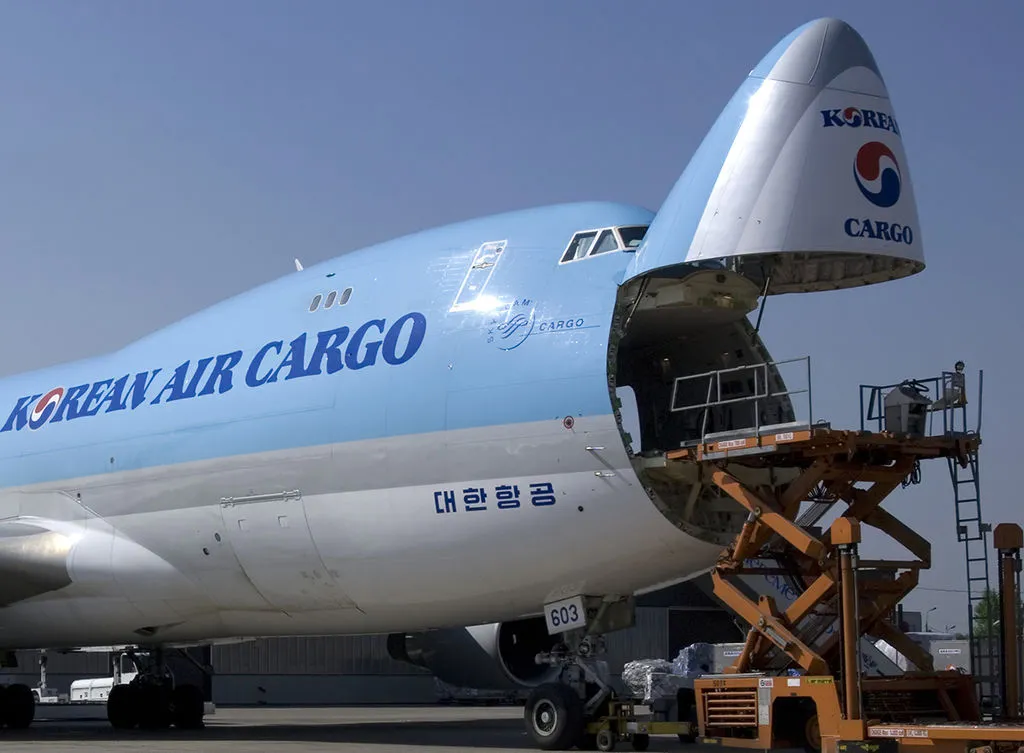
Deteriorating world trade affects air cargo market
Aug 09, 2018

The current decline in global trade is significantly impacting the air cargo market. As economies face challenges such as rising inflation, geopolitical tensions, and fluctuating demand, cargo volumes are declining, leading to increased competition among carriers. Airlines struggle with capacity management and fluctuating freight rates, while some routes see reduced frequencies or service cancellations. This downturn not only affects revenue for air cargo operators but also complicates supply chain logistics for businesses reliant on timely deliveries. As the landscape evolves, industry players must adapt to these changes to maintain operational efficiency and profitability.
The global air cargo market is currently facing significant challenges due to the deteriorating state of world trade. Several factors, including geopolitical tensions, economic downturns, and changing consumer behaviors, are impacting the flow of goods and the efficiency of air freight operations. As businesses adapt to these shifts, understanding the implications for the air cargo market becomes crucial. In this article, we will explore the key elements affecting air cargo, supported by relevant data and trends.
Impact of Global Trade Decline
The decline in world trade can be attributed to a multitude of factors. Key among them are rising tariffs, trade wars, and political instability, which create uncertainty in international markets. According to recent reports, global trade volumes have decreased significantly, leading to reduced demand for air cargo services.
For instance, a recent chart illustrates the decline in global trade growth over the past few years:
| Year | Global Trade Growth (%) |
|---|---|
| 2018 | 3.5 |
| 2019 | 1.2 |
| 2020 | -5.3 |
| 2021 | 6.9 |
| 2022 | 2.5 |
This data highlights a troubling trend for the air cargo industry, which relies heavily on robust global trade networks. As trade volumes decline, air cargo operators face increased competition and reduced profit margins.
Geopolitical Tensions and Air Cargo
Geopolitical tensions have a substantial impact on air cargo operations. Trade disputes, particularly between major economies like the United States and China, disrupt supply chains and create uncertainty for businesses. These tensions often result in increased shipping costs and delays, further complicating logistics for air cargo providers.
Moreover, the ongoing conflict in various regions affects air freight routes and operational efficiency. Airlines must navigate complex airspace restrictions, which can lead to longer transit times and increased operational costs. This situation has prompted air cargo companies to reevaluate their strategies and adapt to the rapidly changing landscape.
Economic Downturns and Consumer Behavior
Another factor influencing the air cargo market is economic downturns. As economies slow down, consumer spending typically decreases, leading to reduced demand for imported goods. This decline directly impacts air cargo volumes.
Additionally, changing consumer behavior plays a critical role in shaping the air cargo market. The rise of e-commerce has shifted demand from traditional retail to online platforms, creating a need for faster shipping options. However, when economic conditions are poor, consumers may prioritize cost over speed, leading to a preference for slower, more economical shipping methods.
Operational Challenges Faced by Air Cargo Companies
The air cargo sector faces numerous operational challenges exacerbated by the current state of world trade. Increased fuel prices, labor shortages, and supply chain disruptions are just a few of the issues impacting air cargo operations. These challenges can lead to higher operational costs, ultimately affecting pricing strategies for freight services.
Furthermore, regulatory changes in various countries can pose additional obstacles. Compliance with new regulations may require air cargo companies to invest in updated technology and training programs, further straining their resources.
Adapting to Change: Strategies for Air Cargo Providers
To navigate the deteriorating world trade environment, air cargo providers must adapt their strategies. This includes diversifying service offerings, enhancing operational efficiency, and investing in technology. By leveraging data analytics, airlines can optimize their routing and pricing strategies, ensuring they remain competitive in a challenging market.
Additionally, building strong relationships with key stakeholders, including freight forwarders and logistics companies, can help air cargo providers create more resilient supply chains. Collaboration and communication are essential in overcoming operational challenges and ensuring timely deliveries.
Future Outlook for the Air Cargo Market
Despite the current challenges, there are opportunities for growth in the air cargo market. As businesses increasingly rely on e-commerce and just-in-time inventory strategies, the demand for air freight services may rebound. However, the extent of this recovery will depend on improving global trade conditions and resolving geopolitical tensions.
In conclusion, the deteriorating world trade environment has far-reaching implications for the air cargo market. By understanding these challenges and adapting to change, air cargo providers can position themselves for success in an evolving landscape. Continuous monitoring of global trade trends and consumer behavior will be essential in navigating the future of air cargo.
Related Articles

Explore Thailand: The Best Islands to Visit for Paradise, Adventure, and Relaxation

The Ultimate Guide to the Best Islands in Thailand for Your Next Getaway

Do babies need passports? How to get a passport for a newborn

How to get a U.S. passport fast: here’s how to expedite the process

What is Mobile Passport Control: 5 reasons why you should use it

SENTRI vs. Global Entry: A detailed guide

Do you need a passport to go to the Bahamas? Let’s find out

Do you need a passport to go to Mexico? A detailed guide

Do you need a passport to go to Canada? We got the answer

Do You Need a Passport for a Cruise: An Essential Travel Guide

Booster Seat Requirements: All the Rules to Follow in Your Rental Car

What Are the World’s Most Powerful Passports, and How Does Yours Rank?

How to Take a Passport Photo at Home: A Helpful Guide

You've got to have heart! Southwest's new livery

Your opinion: Should water be free on low cost carriers?

Young women bolder than guys as solo travellers
